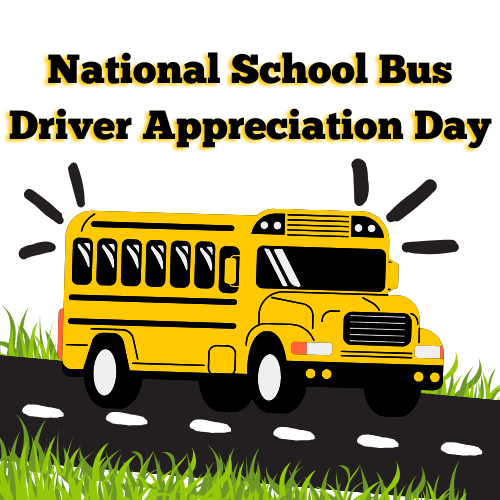Social studies teacher Bev Smith has had a passion for education for longer than any of her current students have been alive. After three decades, Smith brings a lot of experience to the classroom.
“This is my 30th year of education,” Smith said. “And I guess the reason I’ve been teaching so long is that I’m having fun, I’m not bored, I still love what I’m doing every year. Since I’m also the curriculum coordinator for the district and for social studies, there are also things that are happening with the content that I can still contribute to, and help teachers be the best they can be in the classroom.”
Smith spent many years teaching middle school, and while she does not prefer high school over middle school, or middle school over high school, she recognizes that both levels have very different needs intellectually and emotionally.
“To me, [middle schoolers] need to be loved too,” Smith said. “And it’s really hard to love kids in middle school. Because the hormones are raging, and everything’s either catastrophic or there’s just so much drama. You get to high school and things change a little. You begin to see the maturity level change, but that doesn’t mean there aren’t also issues that face people who are young adults.”
To focus on improving these issues with students, Smith has learned to consider two major factors that are essential for teachers aspiring to be what she calls a “Super Educator”.
“There are times when you’ve got to step back and say, I need to really consider how I build those relationships with students, and the importance of doing that to help them be successful,” Smith said. “And sometimes it’s really hard. You either have a teacher that’s really good instructionally that has a hard time relating to kids, or you have a teacher that everybody loves because they do those relationships really well, but they couldn’t teach themselves out of a paper bag.”
While trying to find a happy medium can be difficult, Smith is able to combine both the instructional and relational aspects of teaching so that students can get the most out of her classes.
“I connect really well with students,” Smith said. “I find what their interests are, I kind of capitalize on that, I try to relate to them in those ways. But then I also know that it’s important that I’m your teacher. I can be your mentor too, but I’m not here to indoctrinate you, I’m here to educate you.”
After 30 years, Smith has on multiple occasions become a teacher to different generations of the same family.
“It’s fabulous to see the kind of parents and adults they’ve become,” Smith said. “It’s really great. I’ve been teaching so long, there’s not really anywhere I can go in this part of Texas and not run into a former student. They’ll just run over and give me a great hug, and that’s really a great thing too. Some will say, ‘I’m really glad you were so hard on me, and that you made us work so hard. Because it helped me better appreciate what hard work means.’ So that’s really fantastic.”
Other happy moments in recent years for Smith include her relationships not only with her students, but with her family and friends as well.
“For me, it’s also the lifelong friends and colleagues I’ve made, like Mr. Finn, and there are others, Mrs. Novicke and I are very close, Mrs. Bellar from the middle school, we’re very close, so it’s building those relationships,” Smith said.
Those relationships are often long term. AP Human Geography teacher Homa Lewis was teaching at the same school where Smith began her student teaching. The two have known each other for 31 years, and working together in the same district now is a happy coincidence for both of them.
“We’ve been friends for a while,” Lewis said. “I started teaching in 1984. Through our mutual friends, we’ve always just kept in touch with each other. She student taught with a teacher that was in the department, and I knew then that she was going to be in it for the long term.”
Along with the rewarding aspects of her career, there are also some unpleasant situations that can occur over the course of 30 years, and Smith has had her share. Whether it’s a violent, scary, or stressful situation, Smith has learned to deal with student problems over time.
“All the good far outweighs those incidences, even though sometimes you remember those because they did help you grow as a professional,” Smith said. “Did you handle it properly? Did you follow procedure? Did you find out why that student was having such a bad day, and why at that particular time they chose to take it out on you? If a student is extremely angry, it may not be of you, but you might say something that tips them off, and they lash out. But you follow protocol, and you don’t treat them any differently. When they come back to your classroom, you’re starting from scratch, there’s no grudges held. We’re going to work our way through it.”
I’m always learning, it never stops. Even when you become an adult, never stop learning. I think if you stop learning then you just stop being, more or less. Have I learned everything in 30 years of education? Of course not. Learning is my job, and I feel good at the end of the day.
— teacher Beverly Smith
There have also been times when Smith has had to make tough decisions concerning how to best help a student who repeatedly fails a class, or a student who is not accepted by their peers, or even a homeless student.
“The thing about it is, the learning doesn’t stop in those situations,” Smith said. “You’ve got to make every opportunity available for students to learn, and having them be hungry isn’t going to be one of those ways, and having them not feel comfortable with their peers is not going to be one of those ways.”
In 30 years, the fundamentals of teaching have also changed significantly. For one thing, Smith calls herself a “digital immigrant” because of the increase in technology usage both in the classroom and globally. Changes like that have been the basis of innovation in schools in the past decades.
“I think that instructionally I’ve changed,” Smith said. “It’s no longer the sage on the stage. We are the, I think, the advocates for students learning what they need to on their own. As teachers, we are the mediators. We provide the pathway for the learning; it’s not all about us. I still do some lecturing, but it’s not anywhere near what we used to do. More and more, it’s about the student engagement, and student involvement in their own learning.”
In terms of students over the past 30 years, Smith recognizes subtle changes. According to her, students tend to want instant gratification more than ever. Partly, she says, her job is to teach students that they can have high expectations as long as they work to achieve them.
“There are certain abilities that you come to the classroom with that my students 30 years ago never would have had,” Smith said. “And part of that is what digital media and everything has done for your generation. It’s left you open for a lot more scrutiny, and the fact that you’re out there on the web is something that scares me in terms of security. I want students to be responsible in that way.”
Smith will continue to make contributions to education and to social studies for years to come.
“You learn from your mistakes,” Smith said. “I think for me, if I stopped learning, that’s when I’d stop teaching. I’m always learning, it never stops. Even when you become an adult, never stop learning. I think if you stop learning then you just stop being, more or less. Have I learned everything in 30 years of education? Of course not. Learning is my job, and I feel good at the end of the day.”











